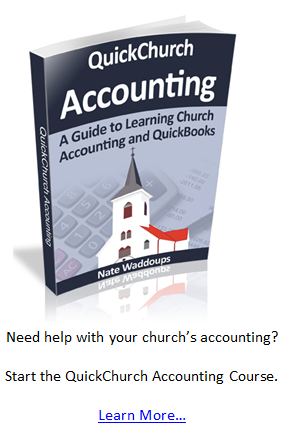
Your first few weeks of being a church accountant feel a lot like this.
So you’ve been asked to be your church treasurer. You may feel overwhelmed, especially if you don’t have any experience with accounting. I can still remember when I was first called to be in charge of the finances for my church. At the time I had already earned my Bachelor’s and Master’s degrees in accounting and worked for one of the largest accounting firms in the world. You know what? I still felt overwhelmed.
Sometimes I think the adversary works on us to make us feel inadequate. If you are feeling similar feelings of inadequacy, then take a step back and think about these two promises from the scriptures:
Isaiah 41:10 Fear thou not; for I am with thee: be not dismayed; for I am thy God: I will strengthen thee; yea, I will help thee; yea, I will uphold thee with the right hand of my righteousness.
Philippians 4:13 I can do all things through Christ who strengtheneth me.
I can give you my personal promise that God will help you as you strive to do your best at handling your church’s finances. Pray often, work hard, ask for help, and before you know it you’ll be an expert at church accounting.
My goal is to help you along the way. I’ll share my accounting knowledge and be here if you have any questions.
With that mindset, let’s get started.
My experience teaching accounting has shown that starting with the end in mind really helps students learn accounting. Students find accounting less tedious to learn when they first see their goal, then they see that every step they are taking is moving them towards that goal.
So what are your goals as a church accountant?
Every church is a little different (even those churches within the same religion). For example, the accounting needs and goals of a Methodist church in New Hampshire will likely be slightly different than the accounting needs for a Methodist church in Virginia. The same goes for other religions (Southern Baptists, Catholics, Mormons, other Christians/Protestants, Buddhists, the Islamic religions, etc.).
Though the accounting reports may vary from church to church, they all share some common goals:
(1). Day-to-day Management Reporting: The reports that the leaders of your church need in order to make financial decisions.
(2). Year-end Financial Statements: The Statement of Activities, the Statement of Financial Position, and the Cash Flow Statement. All churches need these reports at the end of the reporting period.
(3). Year-end Donor Statements for Tax Purposes: You’ll need to give the donors a list of all their contributions for the year. You may also want to issue individual contribution receipts.
If you keep these goals in mind at all times, you’ll have the energy to keep moving when we start getting bogged down in debits, credits, journal entries and all the other wonderful accounting inventions. Accounting really is fun when you realize what you’re doing.

